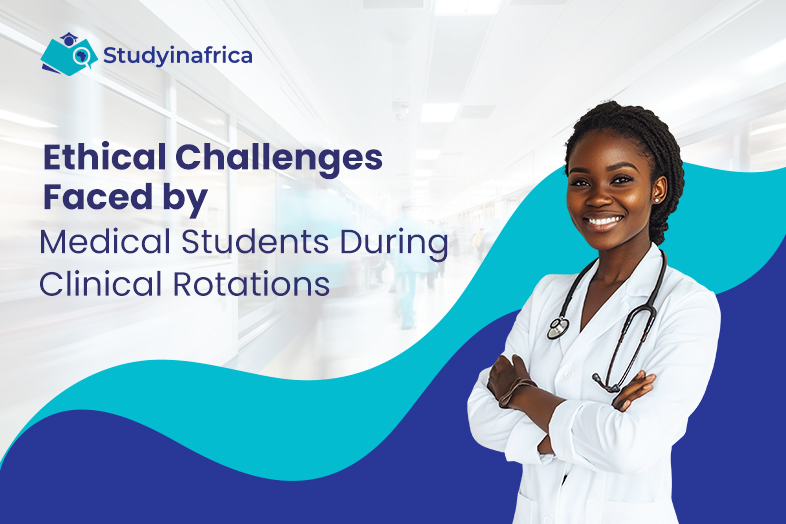
Blog Summary
A Master of Public Health (MPH) degree is the foundation where skilled public health analysts are shaped—professionals who interpret data, track disease spread, and guide life-saving interventions during crises like pandemics. By decoding pandemics in public health, these analysts transform complex data into actionable insights that protect communities. Through intensive training in epidemiology, policy, and real-world fieldwork, students develop both scientific expertise and ethical awareness. In regions like Botswana, MPH programs offer hands-on experiences rooted in local challenges and global perspectives, building systems thinkers ready for action. This blog explores how MPH education transforms learners into frontline public health leaders—making the journey not just academic, but a catalyst for lasting, community-driven impact.
- Learning to Think Like an Analyst
- Education in Context: The Role of Local Health Challenges
- Natural Integration of Global and Regional Public Health Perspectives
- Exposure, Application, and the Value of Location
- What Makes an MPH Degree So Impactful
- The Bigger Picture: Academic Expansion and Public Health Capacity
- Conclusion
Learning to Think Like an Analyst
The MPH journey is as much about learning how to think as it is about what to do. Students are taught to interpret large volumes of health data, understand human behavior during health crises, and navigate the ethics of public health decisions.
Epidemiology and biostatistics form the technical backbone, enabling students to identify patterns in disease outbreaks and understand how viruses spread through populations. Public health policy, health systems management, and environmental health provide the social and structural contexts necessary for creating effective responses.
But the real growth happens when students are exposed to real-time problem-solving—investigating health events in the community, participating in health education programs, or simulating emergency responses. Through this, they learn to ask the right questions, critically assess evidence, and recommend targeted interventions.
Education in Context: The Role of Local Health Challenges
Public health issues vary greatly depending on geography, culture, and economic context. For students studying in Southern Africa, for instance, the intersection of infectious diseases, healthcare access, and socioeconomic disparities provides rich and meaningful learning opportunities.
In Botswana, for example, the education system has evolved to meet these challenges head-on. The country has strengthened its academic framework by offering public health programs tailored to regional needs. Students are trained not just in theory but in practical solutions that can be applied in their local communities—where resources may be limited but the need for public health expertise is immense.
The benefit of learning in such an environment is two-fold: students gain exposure to real-world problems and develop a deeper sense of accountability to the communities they serve. This enhances the long-term value of their MPH degree—not just as a credential, but as a catalyst for real change.
Natural Integration of Global and Regional Public Health Perspectives
An effective public health analyst must be able to navigate both local and global dimensions of healthcare. Universities across Africa, including several accredited universities in Botswana, now offer public health degrees that balance these two perspectives.
Their MPH curricula emphasize foundational global health principles while integrating region-specific modules such as HIV/AIDS response strategies, maternal and child health in rural areas, and health education models that align with local traditions.
This alignment allows students to prepare for global challenges—like pandemics—while staying rooted in the realities of their immediate environment. For instance, a student studying a viral outbreak in a village in Botswana might later apply those same analytical methods to a health crisis in another part of the world.
Exposure, Application, and the Value of Location
In academic settings where community engagement is embedded into the curriculum, the learning experience becomes far richer. In countries like Botswana, students pursuing degree courses in public health are frequently involved in field research, community surveys, vaccination campaigns, and data analysis for government health departments.
The ability to practice what they learn—while still enrolled in university—adds depth to their understanding. This also builds confidence and prepares them for immediate employment upon graduation. The availability of such applied training is one reason students from neighboring countries choose to study in Botswana.
Access to reliable faculty support, internship opportunities, and a growing ecosystem of public health initiatives means that students can immerse themselves in meaningful projects. Whether it’s analyzing COVID-19 transmission data or evaluating malaria prevention strategies, this practical training mirrors the responsibilities they will take on as analysts.
What Makes an MPH Degree So Impactful
The benefits of an MPH degree are evident not only in times of crisis but also in day-to-day health planning. Graduates take on roles in hospitals, research organizations, ministries of health, NGOs, and international health agencies. Their ability to bridge scientific analysis with actionable policy makes them invaluable contributors.
What truly distinguishes MPH graduates, especially those trained in responsive academic environments, is their systems thinking. They understand that health outcomes are shaped by a complex web of social, environmental, economic, and political factors. This insight enables them to craft solutions that are both effective and sustainable.
As public health becomes an increasingly multidisciplinary field, having an MPH provides access to diverse career paths—from infectious disease modeling to healthcare consulting, and from health promotion to emergency preparedness.
The Bigger Picture: Academic Expansion and Public Health Capacity
As global attention shifts to strengthening health systems, many African nations are investing in higher education to build internal capacity. In this context, Botswana stands out for its commitment to improving healthcare through education.
Its universities are producing graduates who are not only well-trained but also deeply familiar with the public health landscape across the region. The rise of quality public health courses in Botswana is contributing to a stronger, more responsive health workforce throughout Southern Africa.
By expanding the reach of education and grounding it in real-life application, these programs are ensuring that future pandemics will be met with better preparedness and more agile responses.
Conclusion
Pandemics do not respect borders—and understanding them requires a global mindset, local insight, and scientific rigor. Public health analysts embody this unique blend of skills, acting as interpreters of complex health events and advisors in moments of uncertainty.
For students stepping into this world, the journey through an MPH program is transformative. It sharpens their analytical lens, strengthens their ethical framework, and prepares them to act swiftly when health emergencies arise.
Whether enrolled in a program at one of the universities in Botswana or engaged in fieldwork within underserved communities, MPH students are learning what it truly means to decode a pandemic—not only with data but with purpose, empathy, and resolve.
FAQs
1. What skills do MPH students gain to become public health analysts?
MPH students develop data analysis, epidemiology, communication, and crisis-response skills to interpret and manage public health challenges.
2. Why is local context important in public health education?
Understanding regional health issues helps students design effective, culturally relevant solutions for local communities and broader global health systems.
3. How do public health analysts contribute during pandemics?
They interpret data, track disease trends, advise policies, and support health systems in controlling outbreaks and protecting communities.
4. What are the benefits of studying public health in Botswana?
Students gain practical experience, community engagement opportunities, and access to accredited degree programs aligned with regional health needs.
5. How does an MPH degree support global health careers?
It equips graduates with cross-disciplinary knowledge to work in NGOs, government, and international agencies addressing health crises worldwide.


